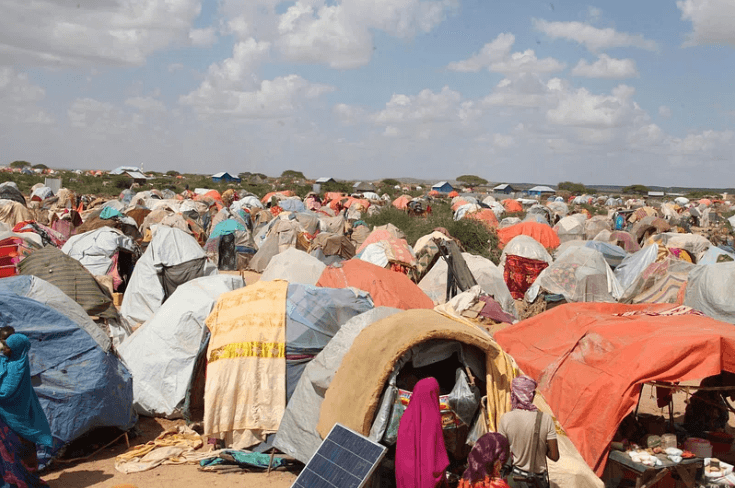











As we step into 2025, the geopolitical landscape remains fraught with instability, driven by significant global tensions from ongoing wars in Ukraine and the Middle East. Maleeha Lodhi's analysis on December 30, 2024, highlights that the global order is fragmenting, with a shift towards a multipolar world [2dcf072a]. The anticipated second term of President-elect Donald Trump, set to begin on January 20, 2025, is expected to heighten this volatility, particularly in U.S.-China relations, as the potential for trade wars looms [da68a1d6]. Trump's administration is expected to promote a policy of 'peace through strength' to restore American deterrent power, contrasting with the previous Biden administration's focus on international cooperation, which has been criticized for weakening U.S. military leadership [da68a1d6].
Key narratives influencing 2025 include the rise of the green hydrogen economy, projected to grow from $1 billion today to $30 billion by 2030, underscoring a significant transition towards sustainable energy solutions [1b5bdf8a]. The first quarter of 2025 is likely to see a hardening of positions among global leaders, including Trump, Vladimir Putin, Xi Jinping, and Narendra Modi. Trump aims to end ongoing conflicts and reshape U.S. foreign policies, while Putin focuses on maintaining territorial control and establishing nuclear response thresholds. Xi is expected to tone down his aggressive stance and redirect attention to internal challenges facing China, while Modi is anticipated to facilitate negotiations and ensure continued economic growth for India [d1b356b5].
In a recent opinion piece, Pratap Bhanu Mehta outlines five key trends expected to shape 2025: The Age of Conspiracy, where belief in conspiracy theories will dominate political discourse in democracies like India and the U.S.; The Age of Communalism, reflecting a resurgence of communal violence in India; The Crisis of Social Self-Knowledge, which highlights uncertainty in understanding social and economic systems post-2008 financial crisis and Covid; Price Discovery in International Relations, predicting increased global tensions and potential wars; and The Age of Creativity, where technological and cultural creativity will thrive despite economic challenges [26116118].
Mian Zahid Hussain, Chairman of the National Business Group Pakistan, predicts a deterioration in the global political and economic landscape in 2025. He argues that the end of the Cold War did not lead to improvement but rather increased conflicts, particularly with the U.S. and Israel focusing on Iran. Hussain notes a decline in Western economic dominance and a rise in anti-Western sentiments, warning of increasing instability, environmental risks, and ongoing conflicts in Ukraine and the Middle East. He expresses concerns about the new U.S. president's policies and their potential impact on U.S.-China relations, emphasizing the threat to democracy and the rise of authoritarianism globally [d1c7e717].
The political upheaval in 2024, marked by the ousting of Sheikh Hasina, Bangladesh's Prime Minister, after a seven-week student-led uprising, has also shaped the global landscape. This revolt was driven by public frustration over political repression and economic mismanagement, leading to the end of the nearly 16-year Awami League government [f8627cb6]. Analysts predict that U.S. policy towards South Asia will remain unchanged despite this political shift, with Trump's administration expected to focus on trade relations with China and geopolitical tensions in the South China Sea and Taiwan [f8627cb6].
Lodhi emphasizes that democracy faces challenges globally, with rising political polarization and autocratisation becoming prevalent. New forms of warfare, such as cyberattacks and disinformation campaigns, are emerging as critical threats, alongside advancements in artificial intelligence that present both opportunities and challenges for nations [2dcf072a].
Shi Yu from China Daily emphasizes the importance of composure for China amid global uncertainty, particularly in light of ongoing conflicts like the Russia-Ukraine war and the Israel-Palestine situation. The need for global economic cooperation is critical, especially as China's goods trade remains strong despite global economic stagnation [267a92b6]. As the U.S. pursues a dual containment strategy against both China and Russia, the dynamics of U.S.-China relations are crucial, with Taiwan being a core interest for China [267a92b6].
Solheim believes that Modi's neutral approach to foreign policy, which focuses on safeguarding Indian interests without interfering in other nations' affairs, promotes global peace and stability. He predicts that the Russia-Ukraine war may conclude in 2025, with Modi playing a significant role in these negotiations [d591f206]. Mark Mobius, a global investor, has suggested that Modi deserves a Nobel Peace Prize for his diplomatic efforts, potentially elevating India's global standing [91c65ea6][d591f206].
The situation in Gaza has escalated, with UN aid teams declaring it a graveyard, while the balance of power in the Middle East shifts due to the fall of the Assad regime in Syria [f8627cb6]. Experts warn that the world may face increased dangers as the Trump administration takes office in early 2025 [f8627cb6]. The second and third quarters of 2025 may bring signs of peace, potentially culminating in a new normal by the fourth quarter. Notably, peace negotiations could lead to a substantial $500 billion reconstruction plan for Ukraine by mid-2025, reflecting a significant international commitment to rebuilding efforts following years of conflict [d1b356b5].
In terms of economic implications, Trump's policies may result in higher prices and tariffs affecting trade with China, Canada, and Mexico, further complicating the global economic landscape [d1b356b5]. Meanwhile, China is expected to strengthen its ties with African nations as it navigates its own economic challenges [d1b356b5]. If India maintains a growth rate of 7% annually, Solheim projected that its economy could match that of the U.S. by 2050, further solidifying its role on the global stage [d591f206].
Climate change remains a pressing issue, with 2024 expected to be the hottest year on record, complicating climate talks as rising CO2 levels pose challenges for global leaders [1b5bdf8a]. Natural disasters have caused $600 billion in losses over the last 20 years, with Hurricane Helene alone resulting in $7 billion in damages [1b5bdf8a]. As Fortune 500 companies set climate targets, the intersection of climate policy and economic strategy will be crucial in shaping the future [1b5bdf8a].
Reflecting on the end of 2024, geopolitical tensions remain high, particularly in the Middle East and Ukraine, with ongoing conflicts and international responses shaping the narrative [f2c8ba44]. The situation in Gaza continues to evolve, and the U.S.-China rivalry persists as a key factor in global stability [f2c8ba44].
In summary, 2025 promises to be a year of both challenges and opportunities, with the potential for significant geopolitical shifts and a renewed focus on peace negotiations, particularly in light of the ongoing crises in Ukraine and the Middle East [d1b356b5][f2c8ba44]. Additionally, a recent report from the Stimson Center outlines the top ten global risks for 2025, which include persistent conflicts in Africa, the Middle East, and Ukraine, rising tensions with Mexico, China, and North Korea, and the consequences of climate change and emerging technologies. The report warns that Trump's economic policies may slow growth and increase inflation, while the ongoing conflicts in the Middle East are exacerbated by the collapse of the Assad regime [29fee355]. Furthermore, the potential for a decoupling of China-U.S. relations and North Korea's military buildup pose additional threats to global stability [29fee355]. The global debt crisis is also affecting the poorest nations, with Nigeria and Pakistan at risk of instability [29fee355].
As 2025 unfolds, the interplay of these risks will shape the global landscape, making it crucial for nations to navigate these challenges effectively to ensure stability and peace in an increasingly complex world.